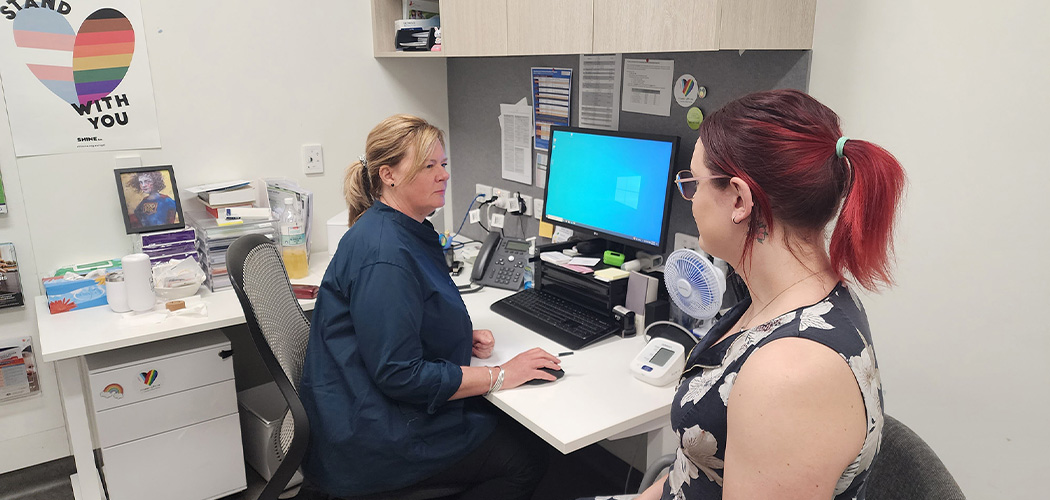Nurse Practitioner Toni Slotnes-O’Brien works at the University of South Australia City West Health Clinic and has developed a nurse practitioner-led transgender and gender diverse clinic for people aged 18 years and over. The aim of the clinic in the primary care setting is to provide quality, safe, and inclusive healthcare for TGD people.
Statistics show that LGBTIQA+ people are twice as likely to experience poor health.
“They’re a community that have the most stigmatisation and the lowest socioeconomically disadvantaged group of people in Australia,” said Ms Slotnes O’Brien.
“There’s two GPs in South Australia and myself, and we’re the only ones that take new patients for gender affirming care. I’ve closed my books now because I’ve got 280 patients with many more on the wait list. They have to go mainstream and hope the GP or nurse practitioner they see is going to refer them into the adult public gender clinic and then they have to wait two to three years.”
The clinic is inclusive and utilises an interprofessional model of care that addresses the unique physical, mental, and social needs of those seeking care in a person-centred and culturally safe fashion. The goals of the clinic are to improve clients’ mental health, prevent suicide and suicidal thoughts, and provide best practice gender-affirming care and coordination of care to enable TGD people to live a life without barriers.
“A lot of what I do is reintroduce people back into the healthcare system because they just disengage completely. A lot of trauma they experience trying to access healthcare happens in primary care.
“It’s not only having a lack of knowledge, but sometimes it’s having an opinion on something and that influences the way they [health practitioners] deliver healthcare. People are not getting referred to where they need to go, people are being denied a pathology form to check their hormone levels. Regardless of what your opinion is, you should still refer to someone that’s willing to provide healthcare even if you don’t.”
Nurse Practitioner-led, gender affirming healthcare for TGD people in the primary health sector provides many advantages. The enhanced scope of practice of NPs allows them to prescribe and monitor gender affirming hormone therapies. This reduces the need for clients to attend unnecessary medical appointments with general practitioners who may not understand the ongoing monitoring required unless they have a special interest or expertise in this field.
Further, as NPs can offer extended appointment times of 40 minutes, more time is available to discuss and assess expectations and emotional needs for gender affirming care. Nurse practitioners are also able to refer patients to multidisciplinary care teams for specialist care. For example, patients might wish to access fertility appointments to discuss sperm or ovary freezing and storage. This can be an important consideration for TGD people, as gender affirming hormones will affect an individual’s fertility and highlights that TGD patients should receive sensitive and inclusive counselling regarding fertility preservation prior to commencing some medical gender affirmation therapies.








